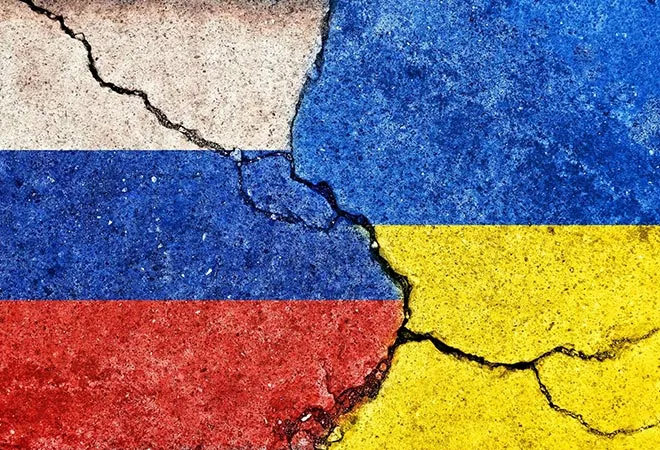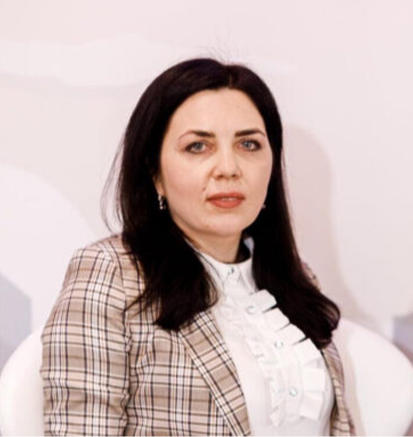
As noted by Indian Prime Minister Narendra Modi, India's presidency of the G20 this year takes place at a time when the world is struggling with geopolitical tensions, economic recession, the negative consequences of the pandemic, and the Russian-Ukrainian war.
During its presidency, India has announced its intention to promote an alternative agenda of peace, progress, dialogue, and consensus and its aspirations to represent the interests of the Global South. This coincides with Ukraine's desire to quickly end the war. India has already played an important role in bridging differences over the condemnation of the war among participating countries during last year's G20 summit in Indonesia. The G20 communique in Bali echoed Prime Minister Narendra Modi’s message to Russian President Vladimir Putin, as it said that “Today’s era must not be of war”. This could serve as the basis for India's continued peacemaking efforts during its presidency this year.
India has already played an important role in bridging differences over the condemnation of the war among participating countries during last year's G20 summit in Indonesia.
During his virtual speech at the summit, Ukrainian President Volodymyr Zelensky presented the “Peace Formula”—a comprehensive document of 10 points that aims to restore peace on Ukrainian soil and create safeguards to prevent war in the future.
Russia's aggression against Ukraine affects not only the territory of one country but also challenges the whole world; it has caused energy and food crises, increased inflation, disruption of supply chains, and increased risks of global financial instability. Every state can contribute to peace by choosing a particular aspect in which its mediation and leadership will prove to be useful. The war now involves a host of issues that needs to be resolved such as radiation and nuclear safety, food security, energy security, the release of all prisoners and deportees to the territory of the Russian Federation, the implementation of the UN Charter and the restoration of the territorial integrity of Ukraine and the world order, ecocide, prosecution of war criminals, etc.
Perils of continued hostilities
The Ukrainian authorities emphasise that their goal is to achieve a complete end to the war, and not a truce, which Russia proposes. Ukraine has learnt its lessons from the Minsk 1 and Minsk 2 agreements which led to ‘frozen conflicts’ i.e., it did not lead to an end to the war, but became a “time mine” for Russia's preparation of larger-scale and bloody military operations. In addition, according to UN estimates, from April 2014 to February 2020, the total number of casualties during the so-called ceasefire amounted to 13,100 to 13,300 dead civilians and soldiers on both sides, and 29,500 to 33,500 wounded.
Thus, it is important for Ukraine to completely restore the country's territorial integrity as it establishes peace. And this, paradoxically, involves the continuation of hostilities and the liberation of territories through military might. After all, Russia has declared that it will not negotiate with Ukraine on the basis of the “Peace Formula” and demands to agree to “new territorial realities”, i.e. to recognise the occupied territories as Russian. The Russian authorities do not hide that the ultimate goal of this military operation against Ukraine remains the occupation of the entire territory of the country, as well as the overthrow of the current Ukrainian government. To this end, the Kremlin has taken measures to reorganise the economy, increase the production of weapons, strengthen the potential of the Russian military forces, and prepare reserves for waging a long-term war.
The Ukrainian adventure, which was a way to reinstate the Russian Federation as a global world power, may instead cause a political collapse.
There is a belief in the Russian political and expert circles that losing the war with Ukraine could undermine the public’s confidence in the current government. For the Putin regime, its Ukrainian adventure, which was a way to reinstate the Russian Federation as a global world power, may instead cause a political collapse. Keeping this in mind, the Russian authorities intensified nuclear threats to create additional pressure on the Ukrainian authorities and their Western allies.
With such actions, Russia lowers the threshold of deterrence for other states and normalises the use of nuclear blackmail in the world. This has already led to a noticeable increase in nuclear rhetoric for example, by North Korea, and has also started a nuclear arms race in East Asia.
Along with the risks of using nuclear weapons, there is also the danger of a nuclear accident: Ukraine has four operating nuclear power plants (consisting of 15 nuclear power units) and one decommissioned. Regular shelling of the energy infrastructure, as well as the seizure of the Zaporizhzhia nuclear power plant by Russian troops and the placement of weapons on its territory, creates a threat of a nuclear accident that can cause irreversible consequences far beyond the borders of Ukraine.
Russia is trying to bring back the “fear factor” in geopolitics, which was last seen during the Cold War period. The danger lies in the fact that the representatives of the Russian authorities, with their nuclear threats towards Ukraine and the West, increase the degree of radicalisation within Russian society and increase political pressure on the Kremlin itself to achieve victory at all costs."
However, to wage a protracted war, Russia seeks not only to put its own economy “on military rails”, but also diversify trade after the loss of European markets, find ways to soften the pressure of sanctions and improve its international position in the face of Western isolation. Russian expert circles are actively discussing the need to build close cooperation with China, India, Turkey, Saudi Arabia and other OPEC+ states and Latin American, African, and Asian states. The primary goal is to reduce the consequences of financial, economic, and sanction pressure from Western countries. However, along with this, Russia seeks to strengthen its geopolitical position, creating a counterweight to the collective West at the expense of an alternative “World Majority” (a term that is actively spread in Russian expert circles) with the participation of these countries.
However, neutrality or unwillingness to join anti-Russian sanctions does not mean “anti-Westernism”. Most of the states that fell under the Russian category of “friendly”, with the exception of Iran and North Korea, cooperate equally with both the sides. The willingness to cooperate with the Russian Federation on a bilateral and multilateral level is more to do with the personal interest of these states. At the same time, many among them do not agree with Russia's violation of the UN Charter and vote for resolutions condemning Russian aggression against Ukraine.
India’s role
The Ukrainian government aims to achieve peace in 2023. Zelensky's team plans to hold a peace summit at the end of February, at which it will present a peace plan filled with practical content based on the 10 points previously mentioned.
India's assistance as the presiding country in the G20 can be useful in implementing those points of Zelensky's “peace formula” that coincide with the agenda of this year's summit. After all, a prolonged war will lead to further destructive effects on the world economy, including the countries of the Global South. On the one hand, such a complex problem becomes a challenge for India's presidency, but on the other, it gives a chance to emerge as an influential global power.
The views expressed above belong to the author(s). ORF research and analyses now available on Telegram! Click here to access our curated content — blogs, longforms and interviews.




 PREV
PREV


